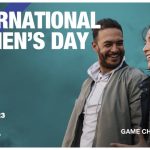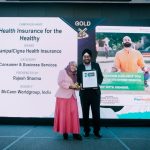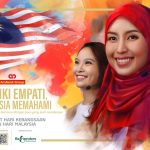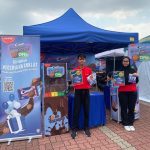McCann Worldgroup Asia Pacific today released insights on the mental health of the region to mark World Mental Health Day (celebrated annually on 10 October).
Drawn from three of the network’s recent Truth Studies – the Truth about Culture & Covid-19, the Truth about Gen Z and the Truth about Wellness, the findings reveal that the pandemic, along with specific generational trends, has had a profound impact on the wellbeing of people in Asia Pacific.
Definitions of Wellness Vary
APAC attitudes differ dramatically from global perspectives when asked “what is wellness?”. The answer – “a state of mind / my emotions” ranked at 31% globally vs. only 16% China and 9% Japan, with both of these markets interpreting wellness as more of a “physical state”.
Despite this, China and Japan both index higher than the global average on the perspective of wellness being
“a way of life”, indicating a more holistic view.
Mental health stigma remains prevalent in many Asian markets, deeply rooted in a culture of collectivism and the concept of ‘face’ where to be different may be deemed undesirable and brings shame on one’s family.
The increasing demands of modern life, combined with the Covid-19 pandemic have added even greater pressures, with almost half of people surveyed globally agreeing that stress is the biggest threat to wellness. APAC aligns, with China at 48%, India at 45% and Japan at 40%.
It will come as no surprise that due to Covid, people are feeling more anxious than before, and APAC markets index higher than the global average of 30.5%, with 42.5% for Japan, and 31.6% for China.
Against this backdrop, 50% people in China and 34% of people in Japan feel that mental health is difficult to talk about vs. a global average of 36%.
Gen Z – A Generation Under Stress
Research reveals that the struggle with mental health for this particular cohort is especially pronounced.
Compared with 58% of the general population globally, 69% of Gen Zs in APAC (compared with 61% average across all age groups) feel pressure to be constantly busy, with Hong Kong, India and Indonesia topping the list. Across nearly all APAC markets, the gap between Gen Z and general population is significant.
Through their use of technology, Gen Z is exposed to so much more of what’s going on around the world than previous generations, with no way to remain ignorant about today’s most anxiety inducing topics like social inequality, sustainability issues, government failures, and so on.
Then there are the additional social stresses that come with having to maintain a certain image online through social media, keeping up with peers, etc.
70% of Gen Zs in India and 67% of Gen Zs in Thailand report feeling lonely despite being surrounded by family and friends, whilst all APAC markets showed significant difference for Gen Z vs general population (with Singapore and Indonesia showing the largest gap of over 10% difference.)
76% of Gen Zs in APAC believe emotional connections are weaker today than they were in the past (in line with global sentiment), however, India and Indonesia exceed this at 86% and 84% respectively.
Even though significant progress has been made to normalize conversations about personal struggles, “problems with my mental health” remain the #1 most difficult topic for Gen Z to discuss with their peers, ahead of other sensitive subjects such as “money troubles” or “relationship problems”. In Singapore alone, 27% of Gen Z overall believe mental health is the most difficult thing to discuss.
Furthermore, when split by gender, (globally) 53% of Gen Z men agree that “suppressing your feelings and emotions is a good thing”, compared with 40% of Gen Z women.
Looking to the Future of Mental Wellbeing
Despite the challenges, there is an increased focus on mental wellbeing and conversations are happening at government, community, brand (business) and individual levels.
In fact, one-fifth of people surveyed in China, India and Japan say that mental health is their top health priority for the future, and with 56% people in China looking for more daily wellness support (vs. a global average of 20%), opportunities to partner abound.
One particular focus is around the role of technology. Is technology making the world more well or more sick? The global average consensus is almost evenly split in response to this.
However, China is overwhelmingly positive on the role of technology in health and wellness, with 91% of people surveyed believing technology has a positive role to play.
Potential exists for brands to provide meaningful solutions to ease the pressure. We know that when asked if respondents prefer a brand that ‘challenges me’ or ‘reassures me’, three-quarters of respondents across APAC markets prefer brands to ‘reassure’, indexing higher than the global average.
Richard McCabe, Chief Strategy Officer, McCann Worldgroup Asia Pacific concludes: “It is clear that more action is needed around mental health. With consumers believing in the power of brands to make a difference, there are opportunities for brands to step up and consider their role in mental wellness to be more cognizant, supportive and action-oriented. Seeing the specific challenges and perspectives in APAC, brands may wish to consider their role as companions along that journey and how they can help to optimize the wellbeing people strive for.”
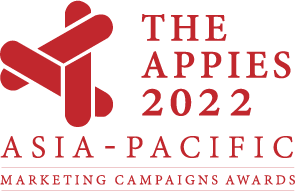
APPIES Asia Pacific 2022 is happening in Malaysia!
Submissions Deadline: 15 November 2021
Announcement of Finalists: 29 December 2021
Judging & Presentations: 25 & 26 January 2022
Winners Announcement: 22 February 2022
Download the entry kit here.
Submit your entry here.
APPIES Asia Pacific is an annual event that presents a rare opportunity for creative, media, digital and marketing agencies or brands to present their best campaigns to the industry.
MARKETING Magazine is not responsible for the content of external sites.


